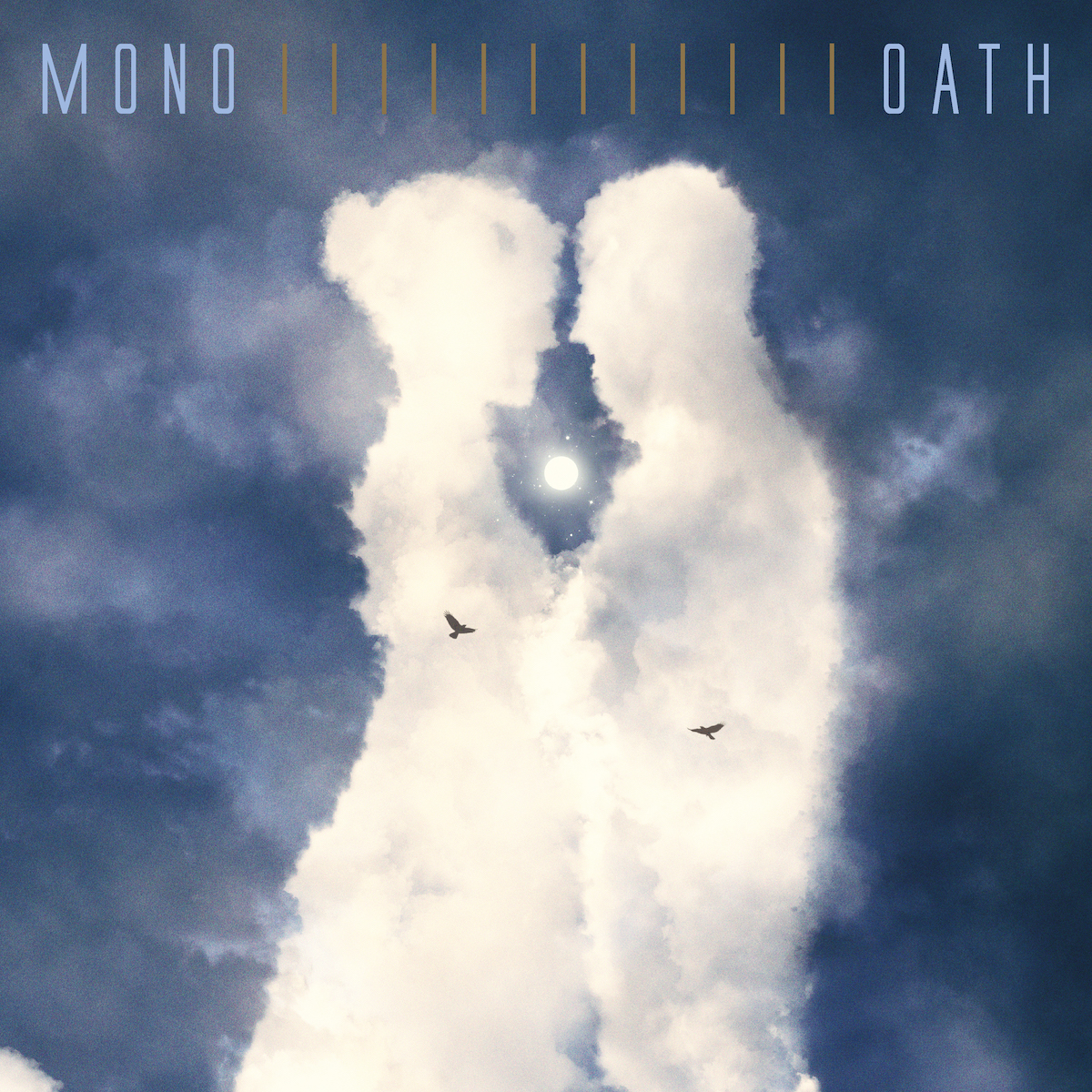MONO – Oath
Temporary Residence Ltd.
“Consistent” is an apt descriptor for the Japanese post-rock outfit MONO, from the frequency of their output to the band’s overall sound since their debut LP, 2001’s Under the Pipal Tree. To greater and lesser degrees, each record could be summarized by soaring guitars, earth-shaking crescendos, and blizzards of distortion.
Little has changed on Oath, one of the last albums recorded by the late Steve Albini. That consistency is appealing to some. For others, it warrants criticism. Both camps have a point.
It’s fitting, given its opaquely anti-capitalist themes, that Oath was produced by Albini, MONO’s most frequent producer since 2004’s Walking Cloud and Deep Red Sky, Flag Fluttered and the Sun Shined. It’s perhaps surprising, given Albini’s body of work, that their union brought restraint and introspection to the band’s music, paving the way for expanded instrumentation—from chamber ensemble strings to electronic flourishes.
Oath thrives as a companion to Walking Cloud, a vision of how far MONO have come. The album opens fluttering between quietude on songs like “Us, Then” and “Then, Us,” which serve as palate-cleansing interludes between the crescendoing “Oath” and “Run On”—filled with contemplative guitars that, inevitably, rise with distortion and swelling strings and horns, until it all washes away like the tide.
While it offers clear highlights—“Run On,” “Holy Winter,” and “Time Goes By” feel like hallmark songs—its loud-quiet-loud pattern is predictable. This is well-trod territory for MONO, never reaching the emotional heights and cerebral intensity of Hymn to the Immortal Wind, the surprising instrumentation or disco-like drums of Pilgrimage of the Soul, or the more nuanced thematic play of the Dante-inspired Requiem for Hell.
“The world is becoming worse and worse because it’s built on people who desperately want to make more money through business and concessions, and want to gain an upper hand,” said guitarist and composer Takaakira “Taka” Goto, explaining the new album. “One day, when our souls leave our bodies and go to heaven, what we will take with us is not money, cars, houses, or possessions but rather, what we could give to others and pride in how we could live our lives.”
In Oath’s quiet moments and bombastic tsunami swells, there is certainly life to be found—a meditation on the dissonance between how we live in practice and how we understand living organisms should exist inside the balance of a delicate ecosystem. There’s an appreciation of life and its ephemerality, a belief in the essential beauty of it all. On the other hand, I suspect, given these themes, an unfamiliar listener could make out the broad shape of these themes in any MONO album.
It’s duplicitous criticism, to be sure. Hearing Oath, it’s hard to not ask what’s new here while also appreciating that MONO has stayed true to their singular voice for almost a quarter-century, mining the possibilities of that sound without ever straying too far from the path. – GRADE: C+



